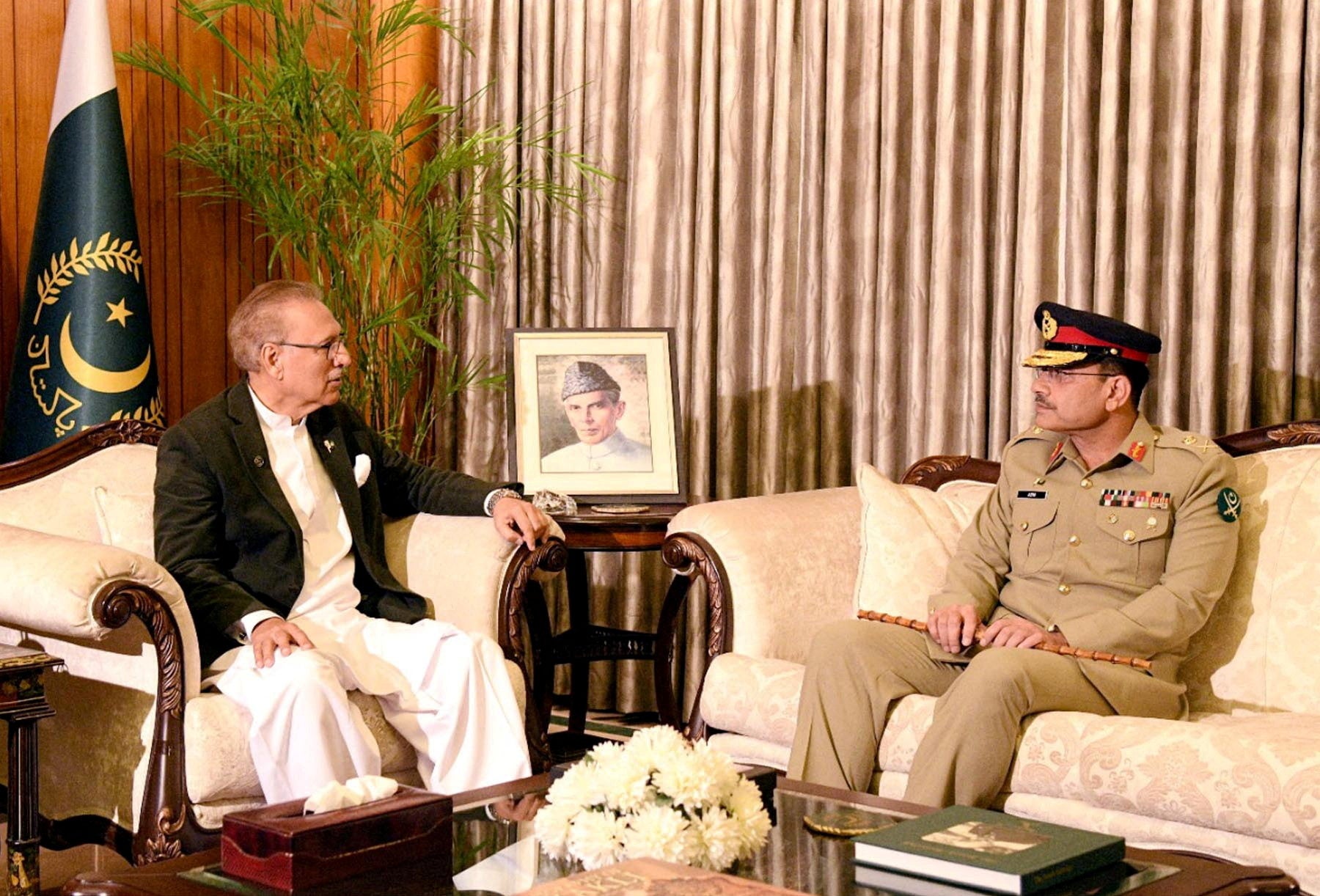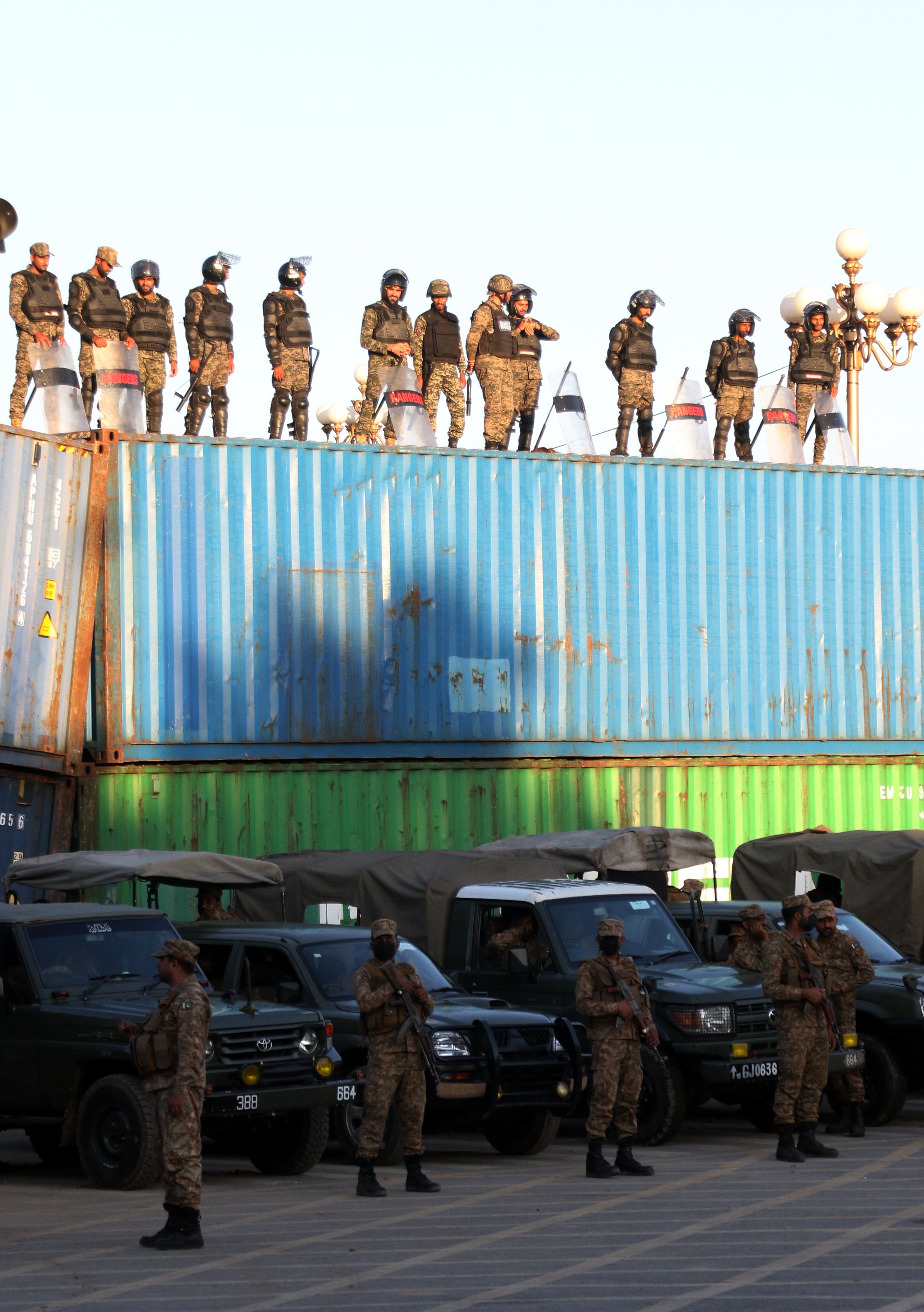Pakistan’s parliament has approved a bill that will extend the terms of the country’s military heads from three years to five, in proceedings rushed by the ruling coalition government amid strong protest from the opposition.
Monday’s measure means that army chief General Asif Munir, who has been in office for two years, will continue to head the country’s powerful military at least till 2027.
The parliamentary proceedings which were telecast live turned disruptive as angry protesters from former prime minister Imran Khan’s party staged strong opposition, tearing copies of the bills.
Lawmakers from the opposition Pakistan Tehreek-e-Insaf (PTI), led by imprisoned leader Mr Khan, argued that the bill was hastily passed without proper debate and said amendments were an attack on the democracy of the country.
The key constitutional amendments from the government of prime minister Shehbaz Sharif, who leads a coalition of parties opposed to Mr Khan that took power after an election in February, are largely seen as aiming to shore up support from powerful military figures.
The amendment to The Pakistan Army Act of 1952 was moved by defence minister Khawaja Muhammad Asif and passed by both houses of parliament.

The law will extend the tenure of three service chiefs – Chief of Army Staff, Chief of Air Staff and Chief of Naval Staff – to five years from three.
The retirement age limit of 64 years for Generals, Air Chief Marshals, and Admirals will not apply to these three functionaries with any extensions or re-appointments for these roles set at five years.
However, the tenure of chair of Joint Chiefs of Staff remains unchanged at three years, reported Dawn newspaper.
The amendments were opposed by the PTI party members who tore the copies of the bill and flung them towards the house speaker while others chanted slogans.
PTI chair Gohar Ali Khan said: “Today, democracy has been changed into a monarchy”.

PTI’s leader of opposition in the National Assembly, Omar Ayub Khan, said: “Extending the tenure of the chiefs of the armed forces will have a negative impact on the professional competence of the rest of the officers of the armed forces and the standard of the armed forces. This is not a matter of an individual, but of the future of our beloved country.”
Michael Kugelman, director of the South Asia Institute at Washington’s Wilson Center, also weighed in to say that “the most powerful post in Pakistan is poised to become even more powerful”.
“Pakistan’s parliament has pushed through a bill extending the army chief’s tenure from 3 to 5 years, and with little debate,” he said. “When a legislature is reduced to a rubber stamp, democracy is never a winner.”
Information Minister Attaullah Tarar, however, defended the move saying it was for the stability of the armed forces.
"There is no harm if the tenure of any services chief is extended to five years like we have a five-year term for a government," Mr Tarar told Geo New TV. "It will help bring stability and continuity of policies within institutions."
Mr Khan, who was ousted in a no-confidence vote in 2022 and serving a jail term since August blamed the military for staging his ouster after he fell out with then-army chief Qamar Javed Bajwa.
The army has historically wielded huge influence in Pakistan, ruling it for half of its 75-year history, and is believed to have a sway over the politicians in power. Army generals have staged three coups against the elected governments in the history of Pakistan, ruling over the country over three decades.
Several politicians, including Mr Khan, have publicly claimed that military generals pressured and influenced policy-making and played a huge role in Pakistani politics.







